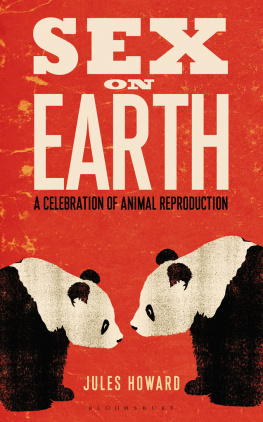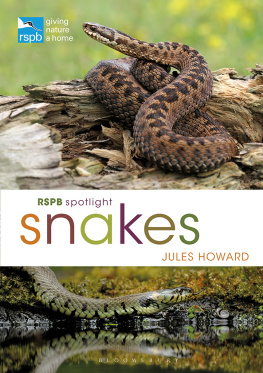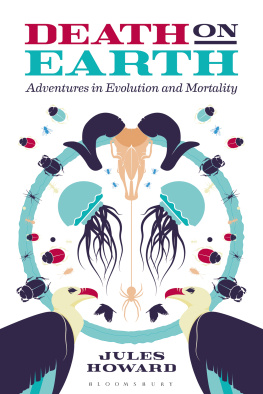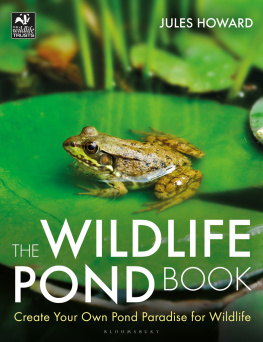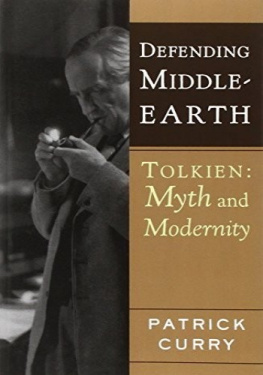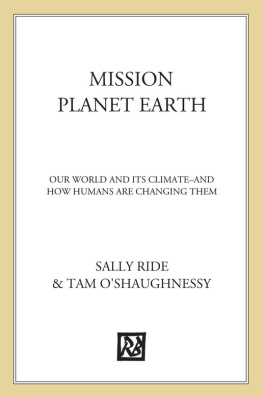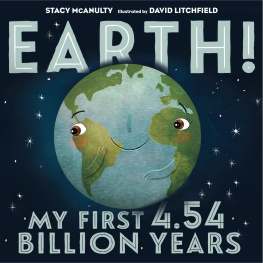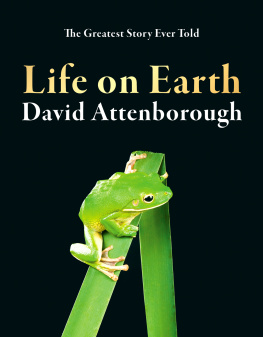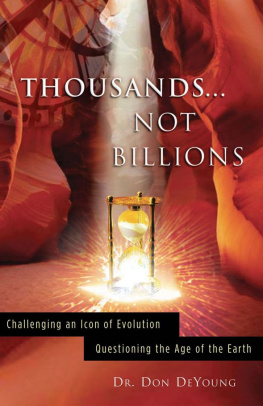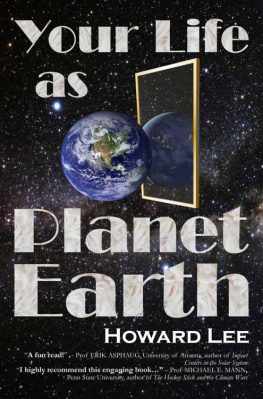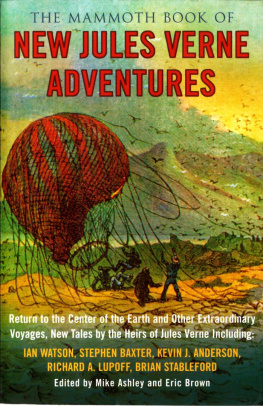
For Emma
(and Tian Tian and Yang Guang)
I would have loved this book to begin with me sweeping through a rainforest lagoon, binoculars in one hand, notepad in the other; waiting, watching, creeping toward unusual animals in the midst of sexual ecstasy. Or with me halfway up a baobab tree, watching cloacas collide between birds just metres away. Or swinging on a rope above the cliff-top clefts in which female Mallorcan midwife toads wrestled and writhed in an attempt to secure access to a perky male. But no, it doesnt begin there. Instead, this book begins with a visit Edinburgh Zoo, and features me staring at a giant panda. Or, to be precise, staring at a giant pandas bottom.
This furry backside, in the corner of her enclosure in the zoo, belongs to Tian Tian, the zoos female panda. I want to describe this bottom a little better, but as far as mammal rear ends go its rather nondescript. No obvious sign of buttocks, no pink genitals hanging out, moderate hairiness, uniform colour. It looks like a tasteful faux-fur cushion. I had imagined that when I saw a live panda for the first time, literary fireworks would spark. That thoughts would scribble magically onto my notepad; that I would be energised with feeling, with passion, with the awe and wonder of this most exquisite of wildlife encounters. ONLY 3,000! 3,000 LEFT! THE BRINK OF EXTINCTION! THE DESPERATE FATE OF LIFE ON EARTH! Yet... why am I not weeping? I should be on my knees, praying for their salvation (or ours). But... nothing. Instead I draw a little illustration: a circle with some fur sprouting from it. Thatll have to do. Underneath I scribble simply, pandas bottom.
Its late 2012 and Im paying homage to Tian Tian and Yang Guang. They are the zoos recent acquisitions and, if all goes well, will soon be the mother and father to a new baby panda. In their first year together at the zoo it didnt really happen (Im told by zoo staff that Yang Guang had trouble with her anatomy, so to speak, and that he missed the target). Perhaps 2013 will be their year?
Were used to being told this, but giant pandas really are a species on the brink. Just those 3,000 or so of them remain on this Earth; a pretty ropy statistic for an animal that once roamed much of China. Victims of a loss of great swathes of their bamboo habitat, made worse by poaching and a (historical) desire for the public to see them in captivity, giant pandas deserve their reputation as a species teetering on the edge of extinction. I grant them that truth. So, I wanted to see them for myself. Ive made the visit to Edinburgh, paid the entrance fee and here I stand. But theres more. For, you see, I have recently come to spend rather a great deal of time playing devils advocate on their behalf, protecting them from an increasingly hostile public reception. In recent weeks Ive found myself writing a host of ripostes, each squared firmly at those people penning comment-pieces in red-tops and broadsheets about the pandas evolutionary dyspraxia, or their special kind of inadequacy, or their apparent inability to perform that most natural of acts: sex.
What am I to do? Sit on my hands while the pandas take a pasting? I did that for a while, but, hell, when the Guardian gets in on the act, you know its gone too far. Their recent editorial (titled Unthinkable? Stuff the pandas) pressed the right buttons to send me into a frenzy. All the buzzwords were there: evolutionary mishap (DING), reluctance to procreate (DING), metabolically ridiculous (DING) and the classic accusation that funds are disproportionately siphoned away from other species on the knife-edge of extinction (DING! DING! DING!).
Am I the only one in the world starting to feel a bit sorry for them? These fat black and white scroungers forever taking, taking, taking failing too often to have the common decency to breed like the rest of life on Earth? Is it really their fault? Do they deserve such stick? No, of course not. So, I have become something of a panda apologist. For are they really sexually maladapted? Do they deserve their reputation as frigid, wasteful prudes? The more Ive come to think about it... well, no. Im not sure they deserve it at all, actually. Surely pandas are as sexually qualified as the rest of us, coming as they do from a long line of ancestors who managed it successfully (all the way back to our common mammalian ancestor and, in fact, back to the start of eukaryotic life)? None of their ancestors ever failed. Theyre the same as you and me in that respect. Pandas arent bad at sex; they have the same batting average as every other animal (pretty much) that youve ever seen. 100 per cent. Actually, I think theyre quite good at sex, based on the majority of the publics opinion of what constitutes good and bad.
Let me explain. Surely the fact that the male pandas high sperm count (20 times more potent than that of some bears) tells us something about their sexual nous? And surely the females tight reproductive window, and the fact that this strategy has managed to see pandas get laid without any problems for thousands of generations, gives a hint that, until we came along, all was OK. In essence, those panda bodies know what theyre doing. Were the ones that buggered their lives up. Far from being confused, sexually lobotomised bedroom bumblers, pandas are likely to be anything but, in the wild and away from us, at least.
Most of what I know about pandas comes from Henry Nichollss book The Way of the Panda. From its pages I know that the story of panda sex is one of humankind imposing knowledge of HOW SEX WORKS onto pandas, expecting them to procreate, watching them fail, then looking instead at what it is that gets pandas going in the wild, and using this knowledge to make them sex-up in zoos. All sounds rather obvious now, doesnt it? Well, yes. Yes it does (for as you will see in this book, we are arguably the most sexually clueless species of the lot). The most blindingly obvious of those early discoveries about pandas is that they can smell things that we cant. Sex smells, in other words. Those panda scientists in the 20th century completely ignored the existence of such a sense, yet it seems so obvious now. To get captive pandas interested in sex, you need to let them get a good whiff of one another as the countdown to the females fertile period begins. Specifically, the scientists found that males and females in wild panda populations keep track of one another by such communication, calibrating their sex hormones in readiness for the final act. Thats why they only need a tiny reproductive window anything else is profligate. This knowledge, second nature to us now, changed everything. Todays panda-keepers depend on such information the smells of sex. They scoop up panda-pee whenever they can and douse wooden blocks in the stuff, liberally distributing the blocks between the separated female and male cages. Thats what gets them going.
For captive panda breeding, this insight into smell and how wild pandas used it was invaluable. Unbelievably so. At one research station, where the scientists were armed with such knowledge, the captive population went from 25 pandas in 1996 to more than 70 a few years later. The lesson learned was this: if making panda babies is your trade, it pays to understand how pandas have sex in the wild, rather than sticking a few together in a pen and hoping for the best. Yet still, after all these discoveries and all this knowledge gleaned from the wild, the pandas drag around this reputation as sexually misguided nincompoops evolutionary mishaps. I find this more than a little confusing. What the hell is going on here?
Next page
